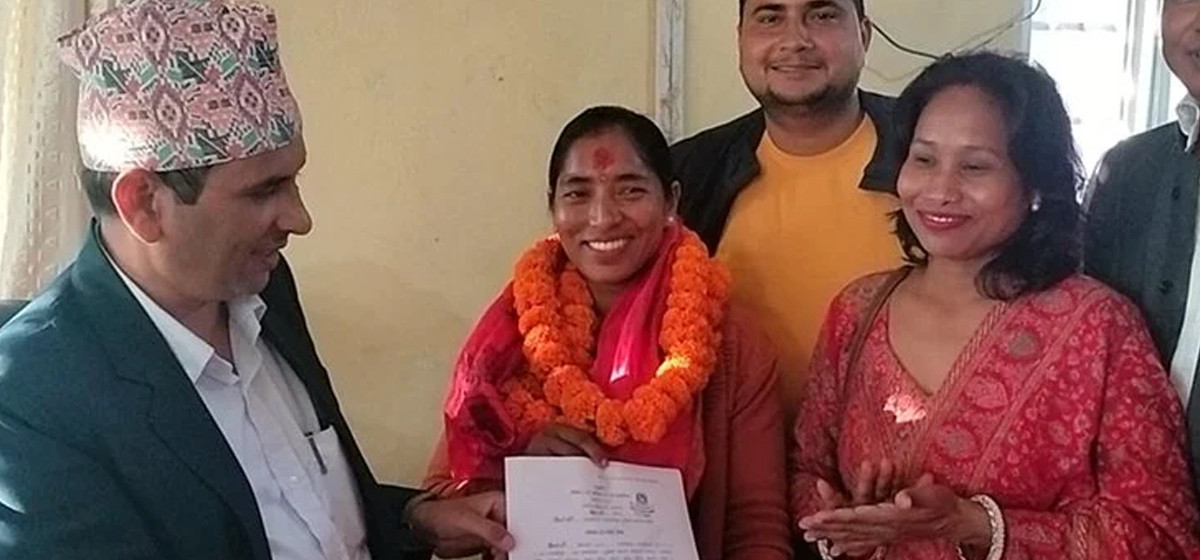Interim leader Mustafa Abdel Jalil arrived in Tripoli for the first time since his forces seized the city last month and was treated to a red-carpet welcome at the Metiga military base, an AFP correspondent reported.[break]
Jalil´s visit to Tripoli, where he was mobbed by hundreds and had to be protected by a thick human chain, was eagerly awaited in hopes it would help tackle rivalries emerging among rebel groups that overthrew Kadhafi.
"The National Transitional Council (NTC) has mapped out a path and we hope that Libyans understand that we have to move along this path fast and that it is no time for revenge," he said upon his arrival in the historic capital.
"We should put all our forces together to liberate the remaining Libyan cities of Bani Walid, Sabha and Sirte," he said after declaring that the deadline for pro-Kadhafi enclaves to surrender had passed.
The battle for one Kadhafi stronghold, Bani Walid, already got off to a fitful and unscheduled start overnight, but NTC fighters withdrew on Saturday, apparently in anticipation of a NATO air strike.
"Now the situation is in the hands of our revolutionary fighters," he said, effectively giving commanders authority to attack Bani Walid, Sirte, Sabha and other pro-Kadhafi enclaves.
That sentiment was echoed in Tripoli where Omar al-Hariri, who oversees NTC military affairs, told AFP that the war against pro-Kadhafi pockets in Bani Walid and Sirte could take up to a week to win.
After clashes broke out overnight between NTC "sleeper cells" and pro-Kadhafi forces inside and near Bani Walid overnight, NTC fighters launched a widespread assault on Saturday.
"The rebels now control positions in the north of the town and are combing through the area where snipers are positioned on rooftops," said Abdullah Kenshil, who tried and failed to negotiate the town´s surrender this week.
He added that one of the fighters was shot and killed by a sniper.
Kenshil said NTC fighters "later withdrew for tactical reasons that could be linked to military operations that NATO might be planning."
A number of former regime officials, including Kadhafi spokesman Mussa Ibrahim, are believed to be holed up in Bani Walid, while the whereabouts of Kadhafi is unknown.
On a different front, fighters of the new regime on Saturday moved five kilometres from a position west of the town of Red Valley towards Sirte, an AFP reporter said.
Around 5:15 pm (1515 GMT), three vehicles belonging to the Kadhafi troops were destroyed by NATO bombing, he reported as cheering NTC fighters shouted "God is Greatest!," "I love NATO!" an "One, two, three, thank you Sarkozy!".

Libya´s National Transitional Council leader Mustafa Abdel Jalil gestures during a press conference in Misrata, saying Moamer Kadhafi´s supporters had failed to meet a deadline to lay down their arms and that the situation was now in the hands of his battlefield commanders (AFP)
Abdel Jalil urged Kadhafi loyalists to allow his fighters a peaceful entry into their strongholds.
"We try to extend our hands to show peace to our brothers there to let our troops enter these cities peacefully without fighting," he told reporters in Misrata where he had travelled from the eastern city of Benghazi.
Later on Saturday Abdel Jalil landed in Tripoli to a warm welcome.
"This is a huge symbol, because it means the end of Kadhafi´s era," said Ahmed Darrad, the interim interior minister inside the NTC of Abdel Jalil´s visit.
"We wish him a good stay and hope that we will be able to benefit from his experience," said the president of Tripoli´s local council, Abdul Razaq Abu Hajar.
Many NTC members, including half of the executive committee, moved to the capital shortly after the fall of Tripoli late last month. But the council´s two top leaders were slower on the scene.
Abdel Jalil is expected to tackle political tensions already surfacing between the capital Tripoli and other NTC strongholds, including Benghazi in the east and Misrata in the west.
Anti-Kadhafi fighters in Misrata, Libya´s third city, say they feel overlooked by the NTC. They are already starting to challenge its authority, refusing to turn over abandoned tanks as requested by interim leaders.
And in Tripoli, power relations are in a state of flux with new bodies and councils created every other day, generating rivalries, complicating the chain of command and adding layers of complexity to Libya´s emerging bureaucracy.
Many in Tripoli stress the importance of the NTC resettling its base in the traditional capital early so that the transition can get underway, regardless of whether Libya is fully liberated.
But Abdel Jalil has said that his current visit to Tripoli was "temporary" and warned that the struggle against Kadhafi, who still has enough money and gold to buy men, was not over.
On Friday, NATO struck a surface-to-surface missile facility, a multiple rocket launcher near Sirte, a command and control node near Hun and a military facility near Jufra, along with some more hits in other areas.
De facto premier Mahmud Jibril refused late Thursday to speculate on Kadhafi´s whereabouts, but admitted the conflict would end only with his capture or "elimination."
The NTC fears Kadhafi will try to slip across one of Libya´s porous borders.
In a defiant message on Thursday, Kadhafi dismissed as lies reports he had fled to Niger, insisting he was still in Libya.
Niger, which has also denied that he is there, vowed to respect international commitments if wanted former Libyan officials enter its territory.
In contrast, Guinea Bissau Prime Minister Carlos Gomes Junior said the fugitive leader would be welcomed "with open arms" in the west African country, a radio station reported on Saturday.
And France, a key player in the NATO campaign against Kadhafi forces, said it does not know where the strongman is hiding.
"We don´t have any information on where Kadhafi is," Foreign Minister Alain Juppe said during a flight to Australia.
5 things to know about Japan’s World War II surrender

































